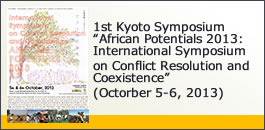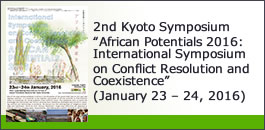[7th Meeting: December 12, 2014] “Valorization of origin based-products in Ethiopia: an option being considered for biodiversity conservation and local development”
Date: Dec. 12 (Fri), 2014, 16:00 – 18:00
Venue: Small-sized seminar room II, 3F Inamori Center, Kawabata Campus, Kyoto University
Program
Title: Valorization of origin based-products in Ethiopia: an option being considered for biodiversity conservation and local development
Presenter:Feleke Woldeyes Gamo (Arba Minch University, Ethiopia / Kyoto University)
Abstract
It is well recognized that conservation objectives cannot be achieved only through reserves that are often small, fragmented, isolated, poorly-protected and in most cases embedded within an agricultural landscape. As a result, the approach of conserving biodiversity while sustaining agricultural productivity, indigenous cultures, and rural livelihoods is increasingly being advocated. At the heart of this new approach is establishing an incentive system that aids in valorization of local products, associated biological resources and know-how. With the intention of examining the mechanisms already in place to valorize local resources and also the potential of the intended approach to serve the intended purpose, a study was made in Southwest Ethiopia. In the presentation, therefore, concepts on local products and their association to biological diversity, mechanisms and tools of valorization, and product promotion and protection tools will be addressed. Resources plants that were identified as suitable for promotion will be presented; their diversity-related role and trend of commercialization will be assessed. The presentation will conclude by summarizing the positive impacts of market-based incentives, the observed or speculated drawbacks and the likelihood of institutionalizing the market-based valorization scheme.
Co-organized by
– Grant in Aid for Scientific Research (A) Project: Engaged Area Studies in the Arena of African Local-Knowledge Formation and Sharing: Seeking for the new images of community
[6th Meeting of Research Cluster on Northeast Africa / 22nd Public Workshop]“Agricultural innovation and participatory approach” (November 25, 2014)
Date: November 25, 2014. 10:00-17:00
Venue: Large-sized seminar room, 3F Inamori Center, Kawabata Campus, Kyoto University
Abstract
This symposium is aimed to discuss researcher-farmer linkages and the effectiveness and institutionalization of participatory approach in the agricultural research through practical experiences of participatory research cases.
In this symposium, four Ethiopian scholars working in the Farmers Research Group (FRG) project will report their activities and Japanese researchers bring the case studies in Asia including Japan as well as other African countries. We hope to make a general discussion on the topics such as the effectiveness of participatory approach and its institutionalization.
We welcome practitioners, researchers, students and all those who are interested in Agricultural development and research in Africa.
Program
10:00
Opening
Moderator: Yoshimasa Ito (Kyoto University)
Opening Address: Kiyoshi Shiratori (JICA)
10:10
First session;“Participatory approach and agricultural technology development”
Moderator: Papa Saliou SARR(Kyoto University)
1-1. “Farmers Participatory Research on Teff, Haricot bean and Wheat Production Technology Improvements in Wolaita Zone, South Ethiopia”
Fanuel Laekemariam (Wolaita Sodo University)
1-2. “Revaluation of local traditional varieties and development of new varieties of chili pepper for the promotion of agriculture at Hilly and Mountainous Areas in Nagano, Japan”
Kenichi Matsushima (Shinshu University)
1-3. “Expected role of area study for ideal community based development: An example of soil erosion countermeasures in Western Kenya”
Yuko Yamane (Nagoya University)
1-4. “Practice-oriented area studies in Bangladesh”
Kazuo Ando (Kyoto University)
12:10
Lunch Break
13:30
Second session; “Institutionalization of participatory research approach”
Moderator: Feleke Woldeyes Gamo (Arba Minch University)
2-1. “Farmer Research Group (FRG) Approach Training for researchers at Adami Tulu Agricultural Research Centre, Oromia”
Kedir Wako (Adami Tulu Agricultural Research Centre, Oromia Agricultural Research Institute)
2-2. “Participatory Research in Amhara Region: Status and Challenges” Tilaye Teklewold (Amhara Agricultural Research Institute)
2-3. “Present status of agricultural research and participatory approach in Ethiopia”
Dawit Alemu (Ethiopian Institute of Agricultural Research)
2-4. “Contribution to Farmers through collaboration between research and extension in Afghanistan”
Masaaki Suzuki (JICA Capacity Development and Institutional Strengthening of the Ministry of Agriculture, Irrigation and Livestock)
15:30
Coffee Break
16:00
Third session; “Discussions: “How we can make participatory approach functional”
Chairperson: Masayoshi Shigeta (Kyoto University)
Comment: Shigeru Araki (Kyoto University)
17:00 Close
Co-Organized by:
– JICA and The Center for African Area Studies, Kyoto University
– The Grant in Aid for Scientific Research (A) Project: Engaged Area Studies in the Arena of African Local-Knowledge Formation and Sharing: Seeking for the new images of community
– The Grant in Aid for Scientific Research (S) Project: Comprehensive Area Studies on Coexistence and Conflict Resolution Realizing the African Potentials
[4th Meeting of Cluster on Northeast Africa] “The Future of Local Knowledge in a Changing Africa: Exploring the State of Institutions of Mutual Assistance and Social Integration”(Co-organized with International Symposium of ZAIRAICHI Research Group, June 15-16, 2013)
Date: June 15-16, 2013
Venue: Inamori Foundation Memorial Bldg. (Inamori Center), Middle-sized Meeting Room (Room No. 332), Kyoto University
Abstract
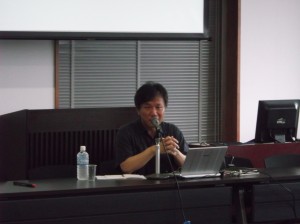
Local knowledge, also known as indigenous knowledge systems or ZAIRAICHI (在来知) in Japanese serve as source of livelihood and tool of survival for the rural communities in many parts of the word. They also serve local communities as medium of interaction (and of integration) with their social and natural environments. Local knowledge systems develop in areas with open ‘boundaries’, which allow their continuous creativity, innovation and evolution. These boundaries, however, are becoming more and permeable in the context of current global interconnectedness. These interconnections, interactions and resultant alterations of local knowledge systems are coming with both challenges and opportunities. Traditional community structures (e.g., kinship/linages) and associated knowledge systems are being weakened/challenged by newly introduced or reformed elements (e.g., religion, education, urbanization, political and other forms of identity formations). Yet, these new elements are also giving rise to new formations or layers of identification by linking people across the ‘traditional’ boundaries, which in turn may create broader opportunities for the members. It is in the context of these emerging challenges and opportunities that we intend to organize a symposium to discuss dynamism of local knowledge (ZAIRAICHI) in contemporary Africa. We plan to focus on aspect of local knowledge that connect people to people (social relations, association, mutual help and cooperation), which serve as fabrics of social integration and survival (livelihoods).
For the purpose of this symposium, we conceive knowledge as constituting both what people know, think and believe, and what they do (practices and institutions). Thus, we would like to explore ideas, norms, practices and institutions in motion (and continuities as well) in settings that are becoming increasingly plural. We examine contending issues, and patterns of contentions between the ‘old’ and the ‘new’ knowledge systems. We would also like to examine emerging patterns of local knowledge formations when adopting new elements or adapting to new situations. In this context, possible research themes may include, but not limited to the following areas: Changes and continuities in the areas of mutual help, cooperation, reciprocity and the state of social integration in a given community on/during: (1) marriage, wedding and child birth; (2) emotional and material assistances upon death/funeral; (3) illness, loss of property; destitution; (4) cooperative labor work on agriculture, construction of houses or other structures
Program
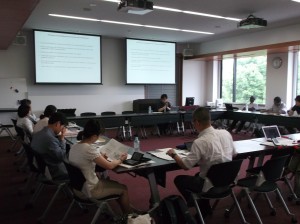
June 15, 2013
09:30
Welcome and announcements
Opening Remarks (Shigeta Masayoshi)
09:45-12:50 Session I
When Diviner Meets Globalization: Local Knowledge and Its Creolization in the Wave of Capitalism
Yong-kyu Chang (Hankuk University of Foreign Studies)
Arsii Custom and Islam in Contest: Understanding the Discourse between Local and Extra-local Knowledge Systems over Traditional Systems of Mutual Assistance
Mamo Hebo Wabe (Addis Ababa University)
Interactions between Variation in Pottery Making and Mutual Assistance in Southwestern Ethiopia
Kaneko Morie (Kyoto University)
12:50-14:00 Lunch Break
14:00-15:00 Session II
Poster Presentations
Cooperative Fishing Activity by Women’s Groups in Zanzibar, Tanzania
Mariko Fujimoto (JSPS Research Fellow PD / Kyoto University)
Sport as a Tool of Survival: An Examination of the Practice of Competitive Cyclists’ Group in Kenya
Takuya Hagiwara (Kyoto University)
An Area Study of Indigenous Ox-Plow in Africa: A Focus on Working Efficiency of Tilling Practices among the Oromo of the Central Ethiopian Highlands
Toshikazu Tanaka (Kyoto University)
Conflict between Wage Labor and "Communal" Farming in Cash Cropping Practices by the Baka Pygmies of Southeastern Cameroon
Ohishi Takanori (Kyoto University)
15:00-15:30 Tea Break
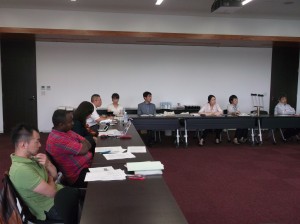
15:30-17:30 Session III
Dynamics of Indigenous Organisations: The Case of the Sengu Gathering of the Matengo People of Mbinga District, Tanzania
David Mhando (Sokoine University of Agriculture)
Sorghum Harvest, Rituals and Cooperation among the Hamer in Southwest Ethiopia
Samuel Tefera (Kyoto University)
Between Epidemiology and Local Knowledge: Exploring the Role of Health Workers in Supporting Households Affected with HIV in Southern Ethiopia
Nishi Makoto (Kyoto University)
June 16, 2013
Session IV 10:30-12:00
General Discussions

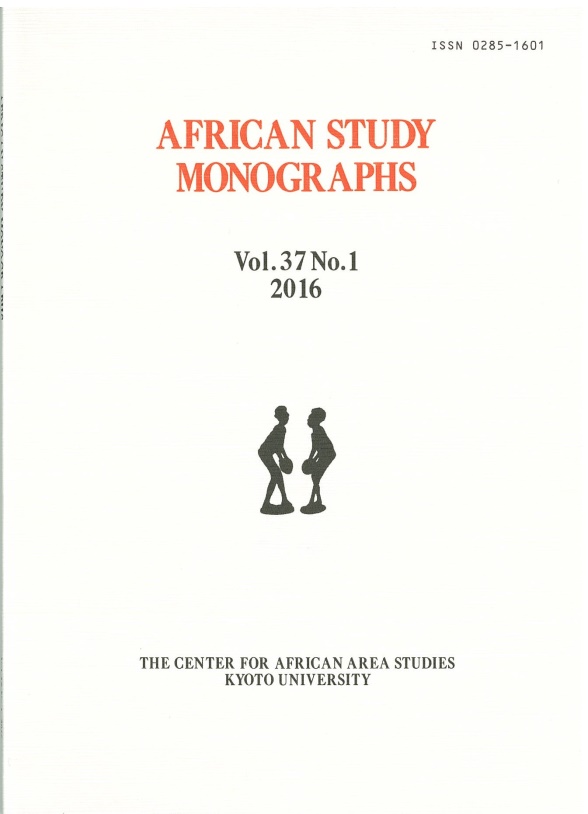
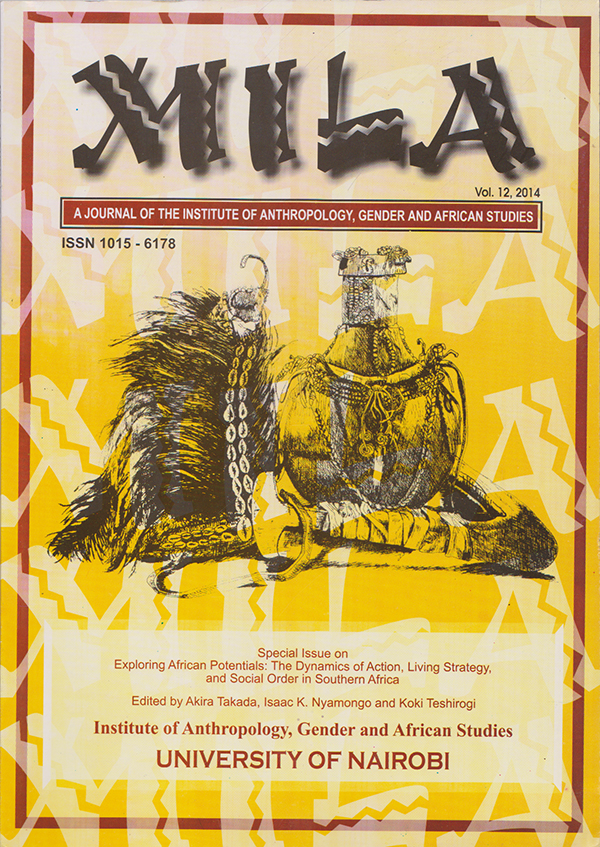 Exploring African Potentials, Mila Special Issue
Exploring African Potentials, Mila Special Issue